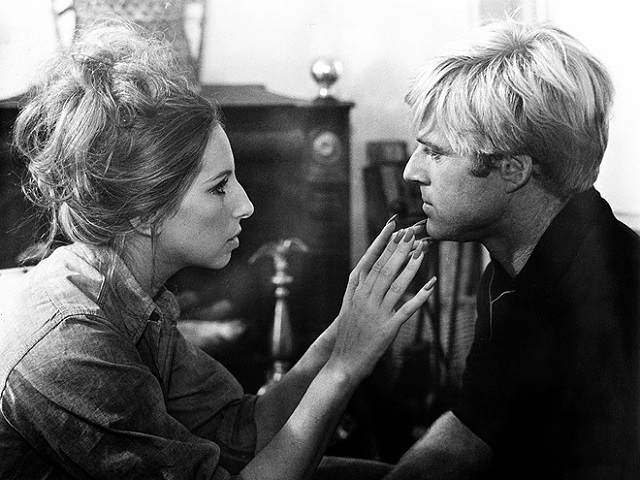Choose Your Words Wisely.
Last week I rambled over to Hilton Head Island for a week with my family.
Sun. Beaches. Ice cream. Nothing to do.
You know, the good stuff.
The part I haven’t mentioned yet is that the 22 of us that comprise the maternal side of my family spent that entire week in one house. I know, crazy right!?
But as I reflect back on lots of little moments that we had together, I was reminded of three little words that can really have a big impact on how the receiver of said word feels. And in turn, how the interaction and ultimately the relationship goes. It may come as some surprise to you right in this moment that none of these words have four letters or are part of the seven words you can’t say on TV.
1. Should
There are few words that will trigger inadequacy and a sense of “not-good-enoughness” quicker than this one.
Visualize someone in your life that you look up to. Got it? Now that person says to you, “You really should have become a ____.”
How are you feeling right now? If you’re anything like me, you might be feeling like you got it wrong. Like the career that you are so passionate about and giving every part of yourself to just isn’t good enough.
A very similar experience happens with really tiny things as well. Consider coming home to your partner or roommate after a tiring grocery expedition and hearing, “You should have gotten carrots instead.”
See what I mean? It barely matters one iota that you picked up acai berries instead of carrots—not to mention everything else that was on the list—because the moment you got “shoulded,” you feel like you really screwed up.
Don’t should on anyone, especially yourself. ~ Jan Addington-Strong
2. Why
“Why are you reading this article right now?”
Feel that little internal reaction? To this day, I immediately feel a sense of defensiveness when “why?” is directed toward me. I leap into an attempt to explain myself in order to cover over that feeling of having gotten it wrong. Yet again. “Why” is certainly one of my least favorite words.
For many of us, the distaste for “why” started in our early years and the context in which we would hear that word. Typically it surfaced when an authority figure was reprimanding us. “Why didn’t you finish your homework?” or “Why did you spill your milk?” And along with the comment was often a tone of derision or criticism that just increased the feelings it provoked.
3. But
On my more difficult days it seems that the only thing I’m trying to do is get people to like me.
Need examples? I’ve got plenty.
Persistent checking of whether anyone has commented on my latest Facebook post. Scouring the internet for the latest pair of cool kicks. Hitting the hot new brunch spot so I can drop it into conversation at that evening’s get-together.
“Like me, like me, like me,” it all clamors.
I’m discovering that underneath this superficial desire to be liked is the fundamental desire to be connected to other people. To bond. James Bond. (Sorry, couldn’t help myself.) I want to love and be loved. And one of the greatest interrupters of this desire to connect is “but.”
Imagine for a moment that you love Daft Punk and to build a new connection with this guy you just met you share, “I’m a big fan of Daft Punk. You like their stuff?” He responds, “Yeah, but they’re such sellouts with this new “Get Lucky” song.”
How you feeling right now?
If you’re anything like me you might start thinking, Well this conversation sure isn’t getting off the ground, and then launch into a defense of what an amazing band Daft Punk is. The mini-relationship with your new friend is not off to a great start.
On the other hand, imagine the same guy responded to your question about Daft Punk with, “Yeah, I’m particularly a fan of their early stuff. “One More Time” just never seems to get old.”
How did that go?
Not bad, right? You might light up a little, and tell him what a good time you had the last time you were out dancing and that song came on. Notice how the two of you are doing this time around. Same guy, same opinions about Daft Punk. It’s just that instead of hitting you with a “Yeah, but…,” he said “Yes, and…”.
I mean, if the relationship can’t survive the long term, why on earth would it be worth my time and energy for the short term? ~ Nicholas Sparks
That’s it. Three little words. Try them. One week. Or even just for a day. Notice all the times that someone uses one of those three words and how you feel. And what happens next.
Great job getting to the end of this article, but you really could have spent your time getting some work done! Why are you spending all this time perusing online? Don’t you have things to do? Shouldn’t you be doing something else right now?
How’s our relationship doing now?
~
Relephant:
10 Ways to Communicate Our Truths in a Loving Way.
5 Things Done Differently in Healthy Relationships.
Bonus!
~
Like The Mindful Life on Facebook.
Ed: B. Bemel



Read 16 comments and reply